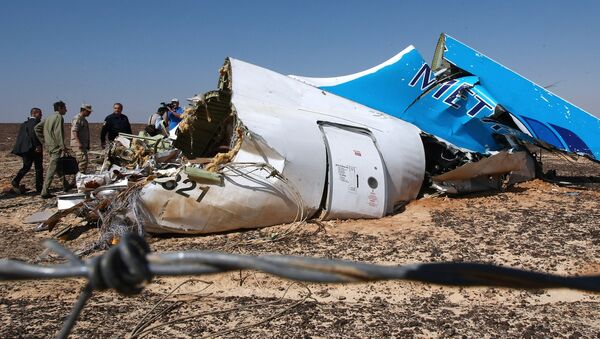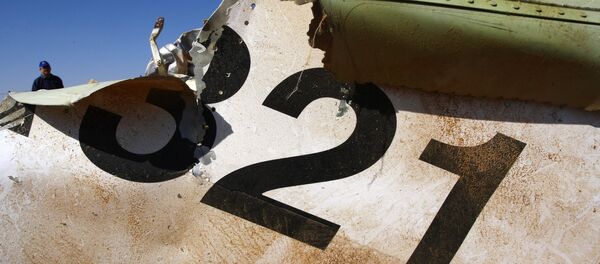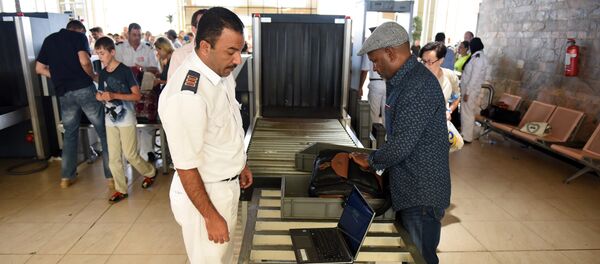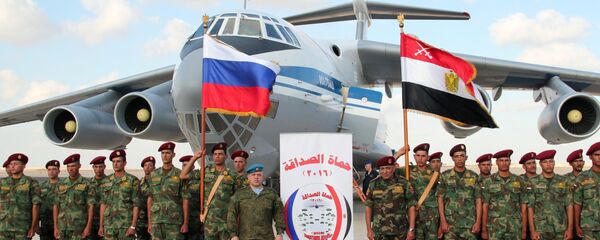A year ago today, the Airbus A321 Metrojet Flight 9268 crashed over the Sinai Peninsula. Among its victims – mostly Russian tourists from St. Petersburg and the surrounding Leningrad region who were vacationing in Egypt, were 25 children. The crash became the biggest disaster in Russian aviation history. In response, Russia and several other European countries suspended all civilian flights to Egypt, citing safety concerns.
Experts have since established that the terrorists placed an explosive device in the tail of the plane. The bomb detonated in mid-air, causing the tail to separate and forcing the aircraft into an uncontrollable dive.
Upon learning of the attack, Russian President Vladimir Putin demanded that the anti-terrorist operation in Syria, begun a month earlier on the request of Syrian President Bashar Assad, step up its intensity. Stressing that Russia would not be intimidated by the terrorists, the Russian military attacked Daesh targets in Syria with cruise missiles from the Caspian Sea, along with missiles and bombs launched by Russian strategic bombers joining the operation from airfields inside Russia.
"Our air forces' work in Syria must not simply be continued," Putin stressed, after paying tributes to the victims of the attack on the airliner. "It must be intensified in such a way that the criminals understand that retribution is inevitable."
In just over a year, Russian bombers and helicopters have flown over 15,000 combat missions, with aerial, naval and strategic bomber strikes eliminating an estimated 30,000 terrorists (including 2,000 militants with Russian passports) in Syria.
Russian-Egyptian Relations
After the crash of Flight 9268, all flights and tours from Russia to Egypt were suspended, cutting off a vital source of income for Egypt's economy. Prior to the disaster, Egypt was the most popular tourist destination for Russian tourists going abroad. Moscow has insisted that Egyptian authorities would have to guarantee improved security in the country's airports for flights to resume. Promising to ameliorate the situation, Egyptian authorities have carried out an intensive campaign to tighten security in airports and resort areas, with foreign security experts coming to the country to inspect conditions on the ground.
On Monday, Egyptian Civil Aviation Minister Sharif Fathi told Russian journalists that the biometric access systems which had been recommended by Russian inspectors in September would arrive in the country next month.
Also on Monday, speaking to Sputnik Arabic, Russian Ambassador to Egypt Sergei Kirpichenko stressed that Egyptian officials were assisting their Russian counterparts in every area, from the investigation into the crash, to finding the perpetrators and their associates, to efforts to prevent the recurrence of such attacks in the future. Minister Fathi added that Moscow and Cairo were working "side by side" to get conditions right to resume flights.
Analysts have pointed out that the political and diplomatic significance of the drills was almost as great as the exercises themselves. The drills are the clearest indication yet that Russia and Egypt are aligned in a joint fight against the terror that has plagued the Middle East, Egypt included, over the last several years. Hopefully, the drills will play a role in helping the Egyptian military to root out and eliminate terrorists before they can harm any more civilians.
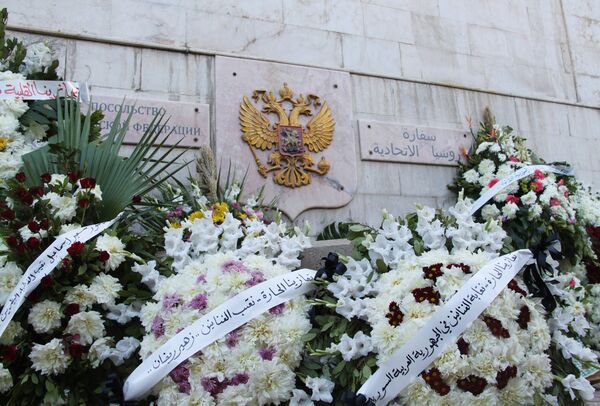
Tragedy Unifies Relatives of the Victims in Their Grief
A year has passed since the attack on Flight 9268. Speaking to the victims' family and friends, RIA Novosti found that the passage of time has not been able to heal their wounds. Still, coming together and working together, including in the construction of a temple to honor the dead, has helped relatives and friends to deal with their loss.
Speaking to the Russian news agency, Irina Zakharova, the head of the specially-established charity fund 'Flight 9268', explained that the fund was formed to commemorate the victims; its existence has proven especially crucial for those who lost children and grandchildren, including Irina, who lost her only daughter. The fund has helped those like Irina to maintain a sense of purpose in life.
In addition to working on organizational issues, including the burial of the remains of unidentifiable victims, the group has met about once a month to provide social support for its members. The tragedy has turned the group into "one big family," according to Irina.
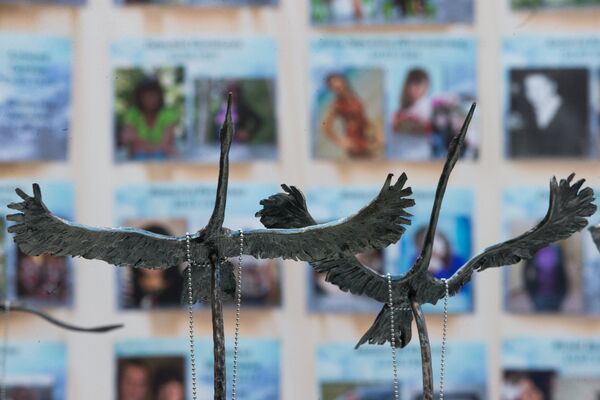
A special monument has been created in commemoration of the tragedy, featuring flying cranes. "This is not a monument for the sake of monuments," Irina stressed. "It is a reminder that you cannot take away the lives of people who are in the prime of their life – who can still do a great deal on their life's path. After all, the average age of our loved ones who were killed was 25-30 years. We must all unite against this global evil called terrorism for the continuance of life on Earth!"
Ultimately, Russia's anti-terrorism operation in Syria won't be able to bring back those who were killed on Flight A321, but hopefully it will help prevent future attacks, not just against Russians, but against civilians the world over.
